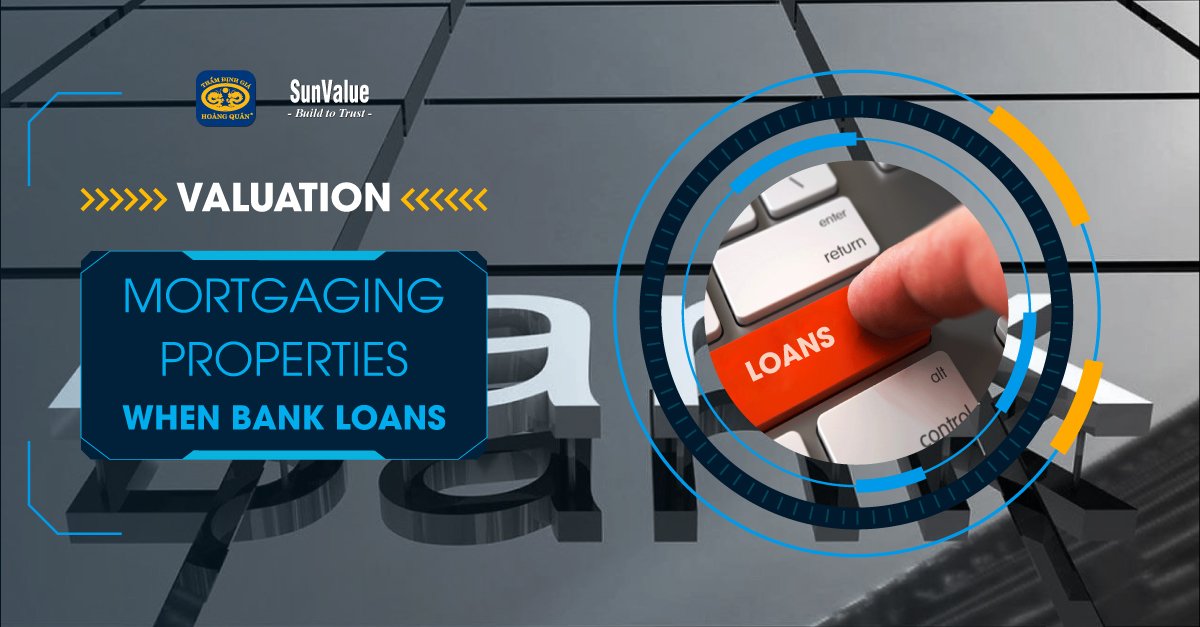VALUATION OF MORTGAGING PROPERTIES WHEN BANK LOANS
Currently, many people still do not fully understand the effect and meaning of collateral valuation when borrowing from a bank, although this is a regulation being implemented in most banks. Valuation of collateral is also the first step for banks to consider whether to accept a loan or not, how much to borrow?
What is collateral?
First of all, we must understand what the term "Security Assets" is?. According to Clause 7, Article 3 of Decree No. 163/2006/ND-CP of the Government issued on December 29, 2006 on secured transactions, stipulates: “Security property is an asset that the guarantor uses to secure a secured transaction. performance of civil obligations towards the secured party”. Also according to Article 4 of this Decree, it says: "Security assets can be existing assets, assets formed in the future and allowed to be traded".

Existing assets can be easily seen and counted. However, in terms of assets to be formed in the future, it is relatively abstract. Therefore, the state has clearly stated in Article 2 of Decree 11/2012/ND-CP explaining assets formed in the future as follows:
Assets formed in the future include:
- Assets formed from borrowed capital;
- Assets are in the formative stage or are being created legally at the time of entering into security transactions;
- Property has been formed and subject to registration of ownership, but only after the security transaction is concluded, such property can be registered in accordance with the law. Assets formed in the future do not include land use rights.”
Relationship between collateral and bank loans.
When you apply for a mortgage bank loan, depending on the value of the loan and the purpose of the loan, you can use many different types of collateral. The more valuable the collateral, the more likely it is to secure large loans with high credit limits. In contrast, low collateral assets, prone to price fluctuations, will often find it difficult to bring the desired loan amount of customers.
Why is it important to appraise the collateral when taking out a bank loan?
Although there are many types of collateral for loan purposes, depending on the regulations of each bank, the collateral for the loan will be different and the loan value is also different. In general, the current lending level of banks is 70% of the value of collateral assets. The most common collaterals today include: real estate documents, valuable papers such as stocks or government bonds, cars, savings books, real estate red or pink books, contracts, etc. life insurance…
The assets are mortgaged to the bank for the purpose of ensuring that the loans are safe and have the ability to recover loans when they are due. Therefore, such collateral must be appraised according to the standards and regulations of the Law on Valuation of Vietnam. From there determine the exact value so that banks or credit institutions have the basis to accept customers loan documents.
Currently, banks often associate with independent, specialized appraisal units to value the collateral assets of customers to ensure the most objectivity and accuracy.
PRESTIGE ASSESSMENT UNIT IN VIETNAM NOW:
Hoang Quan Appraisal (HQA) with many years of experience in the field of appraisal with abundant data warehouse, a team of professional appraisal experts, highly qualified, process appraisal fast, closely, minimizing appraisal costs... Besides, HQAs SunValue service will provide customers with information about the value of the business with high reliability for each appraisal purpose.
Related article
- LOSING MONEY WHEN BUYING AND SELLING REAL ESTATE BECAUSE OF SUBJECTIVITY IN VALUATION
- FOREIGN SETTLEMENT NEED A PROPERTY ASSESSMENT
- Real estate valuation method
- NOTICE OF CHANGE ADDRESS OF KIEN GIANG TRANSACTION OFFICE
- SUNVALUE ONLINE REAL ESTATE APPRAISAL
- HOANG QUAN AND 19 YEARS OF BRANDING POSITIVE, PROFESSIONAL, PRESTIGE



 VI
VI